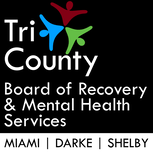113 Whistleblower Protection
Approval Date: July 15, 2009
Revision Effective:
Reviewed: June 15, 2022
A whistleblower is any employee, contract staff, sub-contractor or volunteer of the Tri-County Board who reports an activity that he or she considers illegal, unethical or dishonest to one or more of the parties specified in this policy. Management is responsible for investigating the report, determining fault and taking corrective measures.
Examples of illegal or dishonest activities are
To the extent possible, the confidentiality of the whistleblower will be maintained. However, identity may be disclosed in order to conduct a thorough investigation, to comply with the law, or to provide accused individuals their legal rights of defense. The Board will not retaliate against a whistleblower. This includes, but is not limited to, protection from retaliation in the form of an adverse employment action such as termination, compensation decreases, or poor work assignments and threats of physical harm. Any whistleblower who believes he or she is being retaliated against must immediately contact the Executive Director, or the Board Chair if the person being reported is the Executive Director. The right of a whistleblower for protection against retaliation does not include immunity for any personal wrongdoing.
PROCEDURES:
Revision Effective:
Reviewed: June 15, 2022
A whistleblower is any employee, contract staff, sub-contractor or volunteer of the Tri-County Board who reports an activity that he or she considers illegal, unethical or dishonest to one or more of the parties specified in this policy. Management is responsible for investigating the report, determining fault and taking corrective measures.
Examples of illegal or dishonest activities are
- violations of federal, state, or local laws;
- billing for services not performed, or for goods not delivered;
- health or environmental violations;
- fraudulent financial reporting;
- ethical violations or concerns of any malpractice;
- unlawful conduct or failure to comply with legal obligations;
- concealment of information in relation to any of the above; and
- other violations of public policy.
To the extent possible, the confidentiality of the whistleblower will be maintained. However, identity may be disclosed in order to conduct a thorough investigation, to comply with the law, or to provide accused individuals their legal rights of defense. The Board will not retaliate against a whistleblower. This includes, but is not limited to, protection from retaliation in the form of an adverse employment action such as termination, compensation decreases, or poor work assignments and threats of physical harm. Any whistleblower who believes he or she is being retaliated against must immediately contact the Executive Director, or the Board Chair if the person being reported is the Executive Director. The right of a whistleblower for protection against retaliation does not include immunity for any personal wrongdoing.
PROCEDURES:
- If an employee has knowledge of or a concern of illegal or dishonest fraudulent activity, the employee should first report the activity to his or her immediate supervisor.
- Staff may also contact the Executive Director if the immediate supervisor is the violator, or the Board Chair if the person being reported is the Executive Director. The employee must exercise sound judgment to avoid baseless allegations. An employee who intentionally files a false report of wrongdoing will be subject to discipline up to and including termination.
- Any reports of illegal and dishonest activities will be promptly submitted to the Executive Director, Board Chair, or County Commissioner who is responsible for investigating and coordinating corrective action.
- The Board will not tolerate any discrimination, bullying, harassment or victimization of a whistleblower and will consider this a serious disciplinary offense, which could lead to dismissal.
- For individuals who are licensed as social workers or counselors, ethical violations should be reported to the appropriate licensing Board. Health and environmental violations should be reported to OSHA. Conflict of Interest violations should be reported to the Ohio Ethics Commission.
- Employees with any questions regarding this policy should contact the Executive Director or refer to the Whistleblower Protection Act of 1989.
